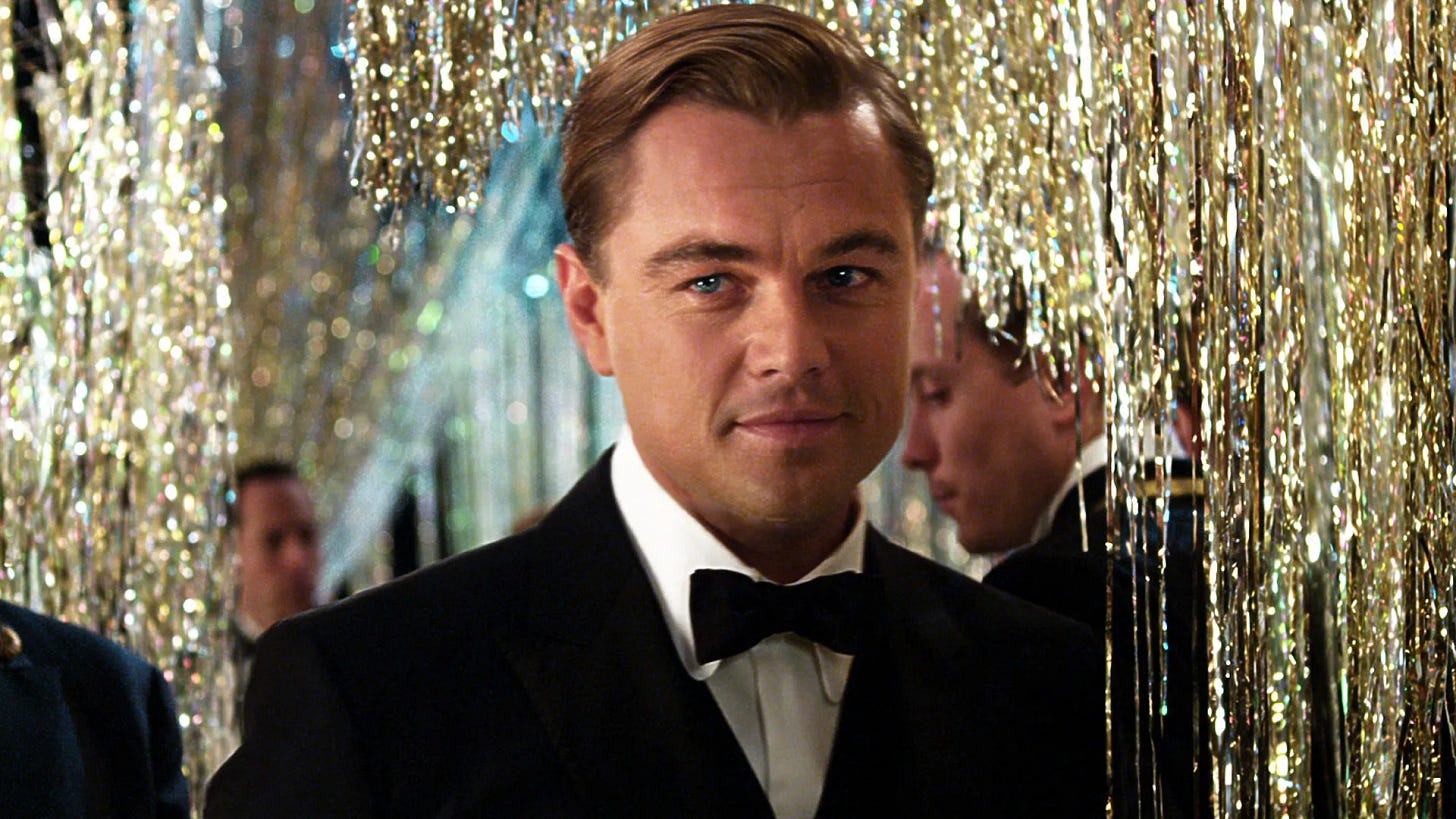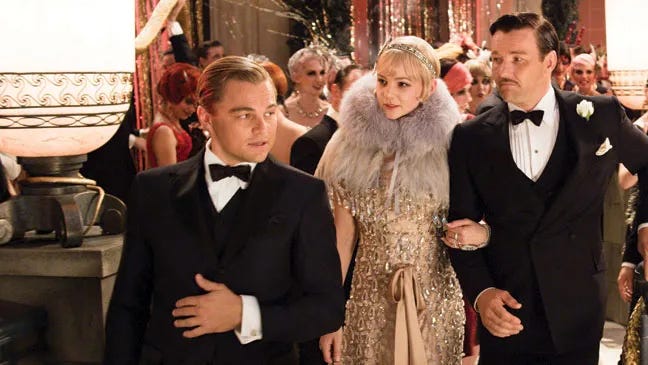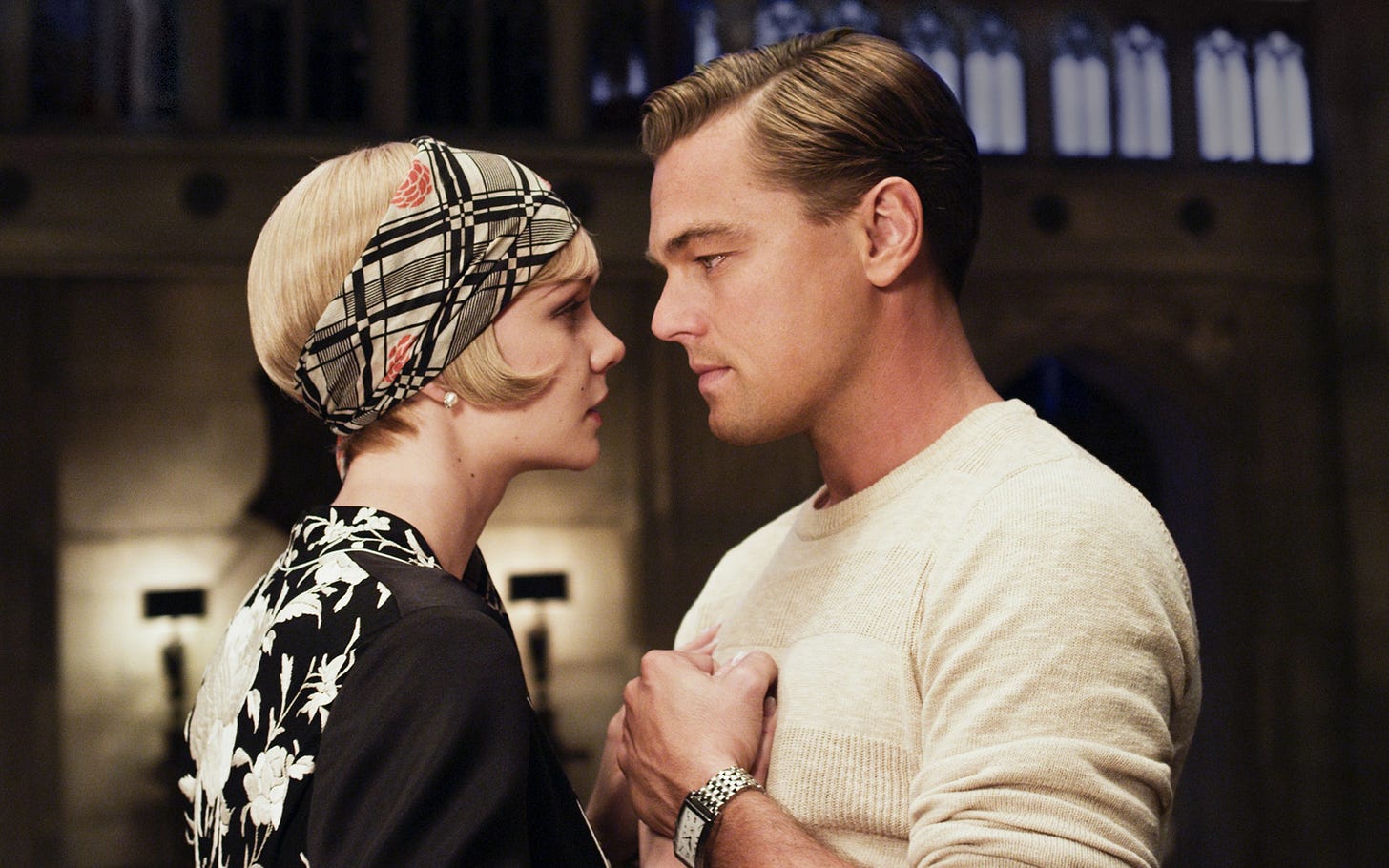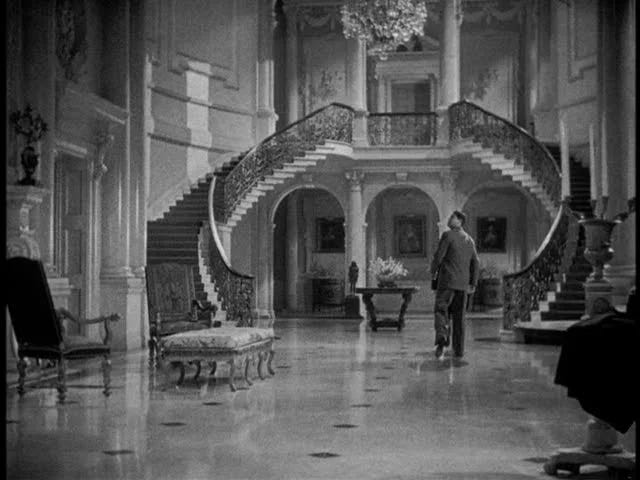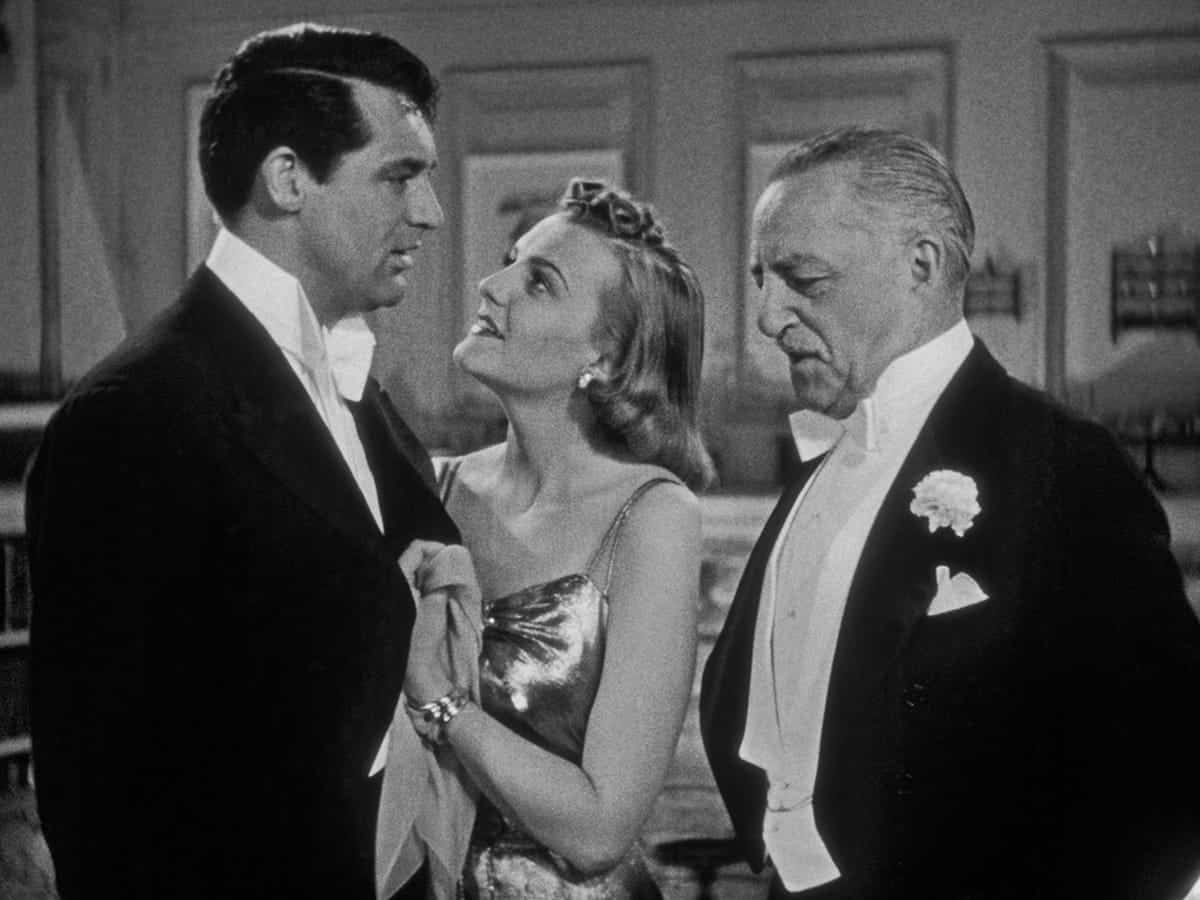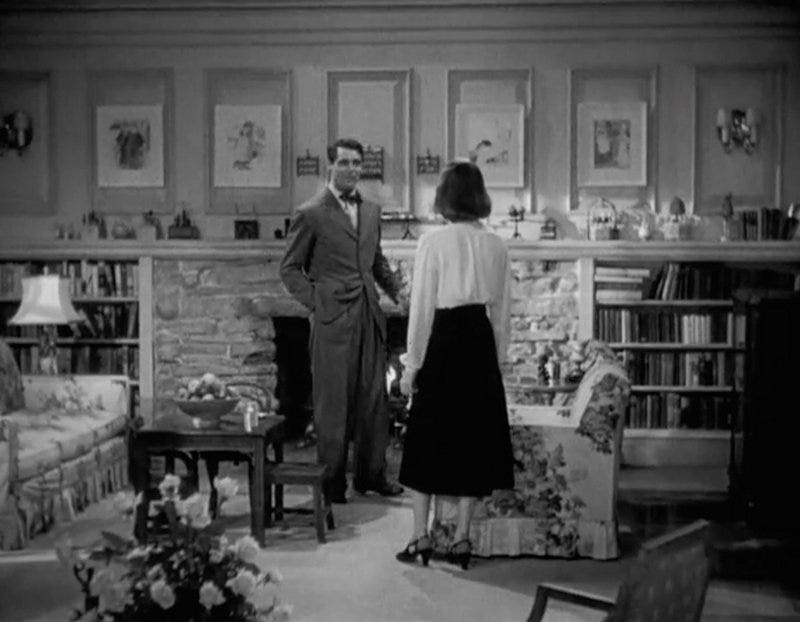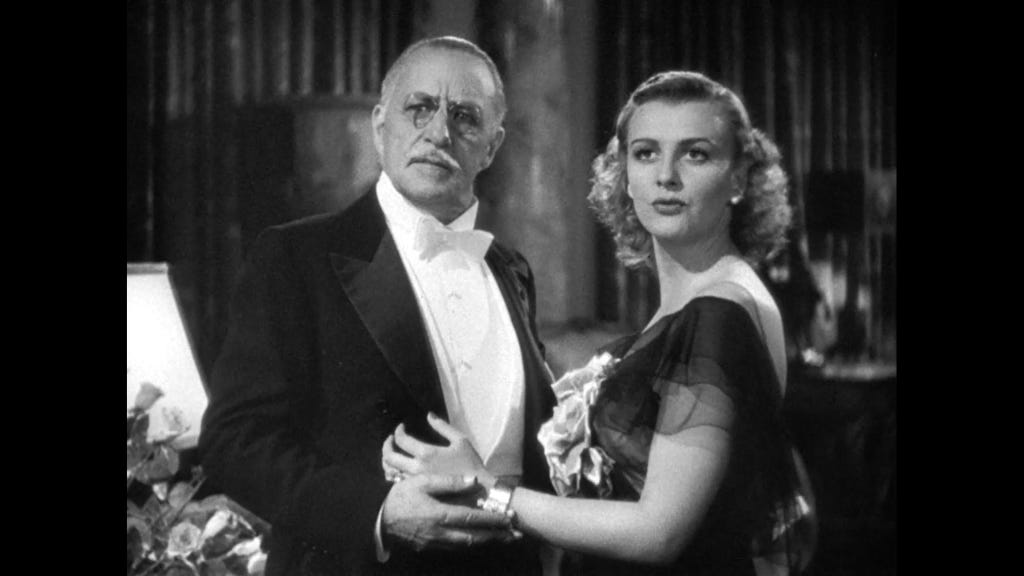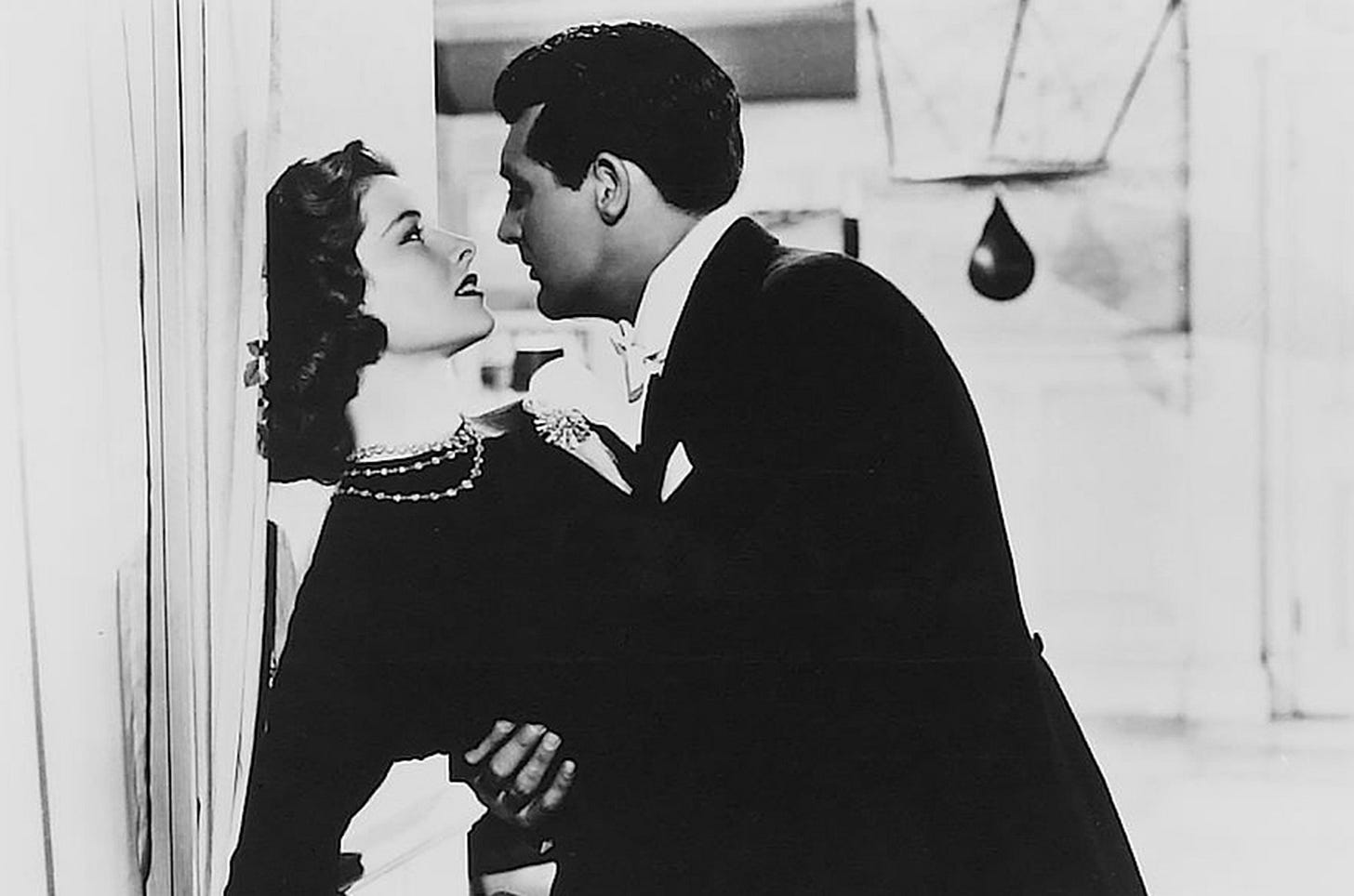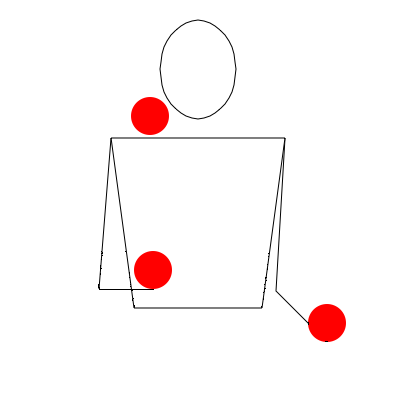Note from Backstage: Thanks in advance for taking the time to read this post. Please Like and share it to promote Backstage. The Backstage subscribers automatically receive new posts from Substack. Writers do not email their posts directly to subscribers.
____________________________________________________________________________
I often dreamed of becoming a visionary businessman like my father, but I ended up teaching literature- and "that has made all the difference." God Bless Frost!
Although it would be mere fiction if I claim I'd model on Jay Gatsby to impress my first love or on Johnny Case to reclaim my principles, I argue for what makes you feel good deep at heart, be it pecunia or principle. Your call.
I'm not sure if Fitzgerald had any idea of the then-upcoming Great Depression when he set the tragedy of The Great Gatsby in 1922, but Philip Barry might have intended to introduce a challenging question to the American economic downturn in Holiday, a romantic comedy set in 1928.
Stay tuned.
The American culture has always been identified with its dream(s). From the 49ers who rushed for gold to Martin Luther King who had "a Dream," to President Obama and his dream of "Change," to his successor with a dream to "Make America Great Again." Oh, and the key word "great!" Along with the American Dream, a quest for a new identity emerged among the youth, and nonconformism followed, for that matter. The 1920s was a critical decade with drastic changes in different aspects of life that are also manifested in the pictures and on stage. The Great Gatsby and Holiday are just two of the prime examlpes, respectively.
The Great Gatsby appeared in the roaring twenties. The booming economy, a new urban culture developing side by side the traditional life style, and the leisure class that spent fortunes on fun and taste are all portrayed in Jay Gatsby's extravagant weekly parties. Notwithstanding the then criticisms of the characterization and "forced" language in the novel, the debonair Jay Gatsby presents an acceptable, though exaggerated, image of an upstart in the jazz age who tries to look relevant to the affluent.
There is much to this showing off than meets the eye. In retrospect, Gatsby and Daisy were in love before he went to WWI, but Daisy did not wait long enough for Gatsby to return and married the rich Tom Buchanan during the time Gatsby was "Mr. No one from Nowhere."
To have Daisy back after returning from the war, Gatsby does whatever it takes to make money. He participates in organized crimes and allegedly makes a fortune through illicit bootlegging. He throws luxury parties hoping to impress Daisy who is now Mrs. Buchanan.
Gatsby invites Daisy through her cousin Nick Caraway, the narrator, who lives in the neighborhood. The two meet, and meet again, and again until a chain of events lead to the tragic destruction of the Great Gatsby who looked the happiest but never tasted happiness.
The roaring twenties came to an end with a shocking downturn- the Great Depression in 1929. Philip Barry's romantic comedy Holiday, first published in 1928 and filmed in 1930 and 1938, might have foreshadowed the Depression as it were. Jonathan (Johnny) Case meets the family of his fiancée Julia Seton while spending his holiday in Lake Placid, NY. He is surprised at finding the Setons a super rich family in the banking industry.
JOHNNY: You wouldn't tell me you're those Setons!
JULIA: Forgive us, Johnny, but we are.
JOHNNY: [(overwhelmed) lowers his head]. It's too much.
Edward Seton, Julia's father, eventually accepts Johnny when he finds out that he is a self-made businessman. But things change as Johnny announces that he has worked enough all through his life and now it's time to enjoy his holiday and care-free life. Julia is disappointed as she never expected this of her fiancé.
Edward Seton offers a banking job to Johnny. He first refuses but eventually accepts on the condition that he'll quit the job if he is not happy with it. Johnny learns that Julia and her father are planning everything from their honeymoon to hiring servants to work in Julia and Johnny's new home. That's too much.
The only family member whom Johnny can connect with is Linda, Julia’s sister. Linda stands on the other extreme end of the family.
Linda and her brother Ned tried to resist their father's patriarchy, but both failed. Linda becomes nostalgic and Ned an alcoholic. Linda is tired of that aristocratic, extravagant, material life and seeks independence and free life which she can’t achieve, and neither can her alcoholic brother. That’s why Johnny falls for Linda, but despite her interest in Johnny, she tries to stay out of her sister’s life and makes every effort to convince Julia to accept Johnny as he is.
Johnny tells Julia that he wants his freedom and independence and asks her to move to Europe with him. Having a business mind like her father, Julia says no.
They break up, and Johnny moves to Europe to join his friends Nick and Susan Potter who had come to attend Johnny’s wedding but left when the marriage was called off. Ensuring that Johnny and her sister’s relationship doesn’t work out, Linda leaves her family estate and joins Johnny and the Potters on the ship to Europe.
Linda and Johnny represent the non-conformist American youth that sought new identities during the Depression, the time that money mattered but these two turned their back to it. They were loud but could not make any changes to the society, and they chose to leave. That being said, Johnny stands by his principles at the cost of his (conditional!) love for Julia. He wants to be himself. The real him that he retains with Linda. I second Pressley (Washington Post, 2001) in that Johnny's choice is not between women; it's "between value systems." Jay Gatsby, on the other hand, makes every effort to get away from his true self and become a member of the affluent community to make his life-long dream come true: get Daisy back at ANY cost. And he lost.
In this three-ball cascade juggling, what matters is to keep the balance.
Once a ball is missed, game over!
Your comments are most welcome.
Thanks for liking and sharing the post. Feel free to subscribe for free :)




